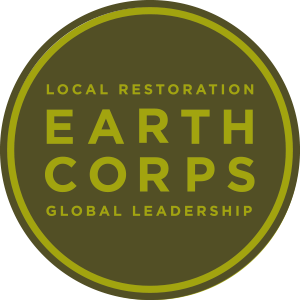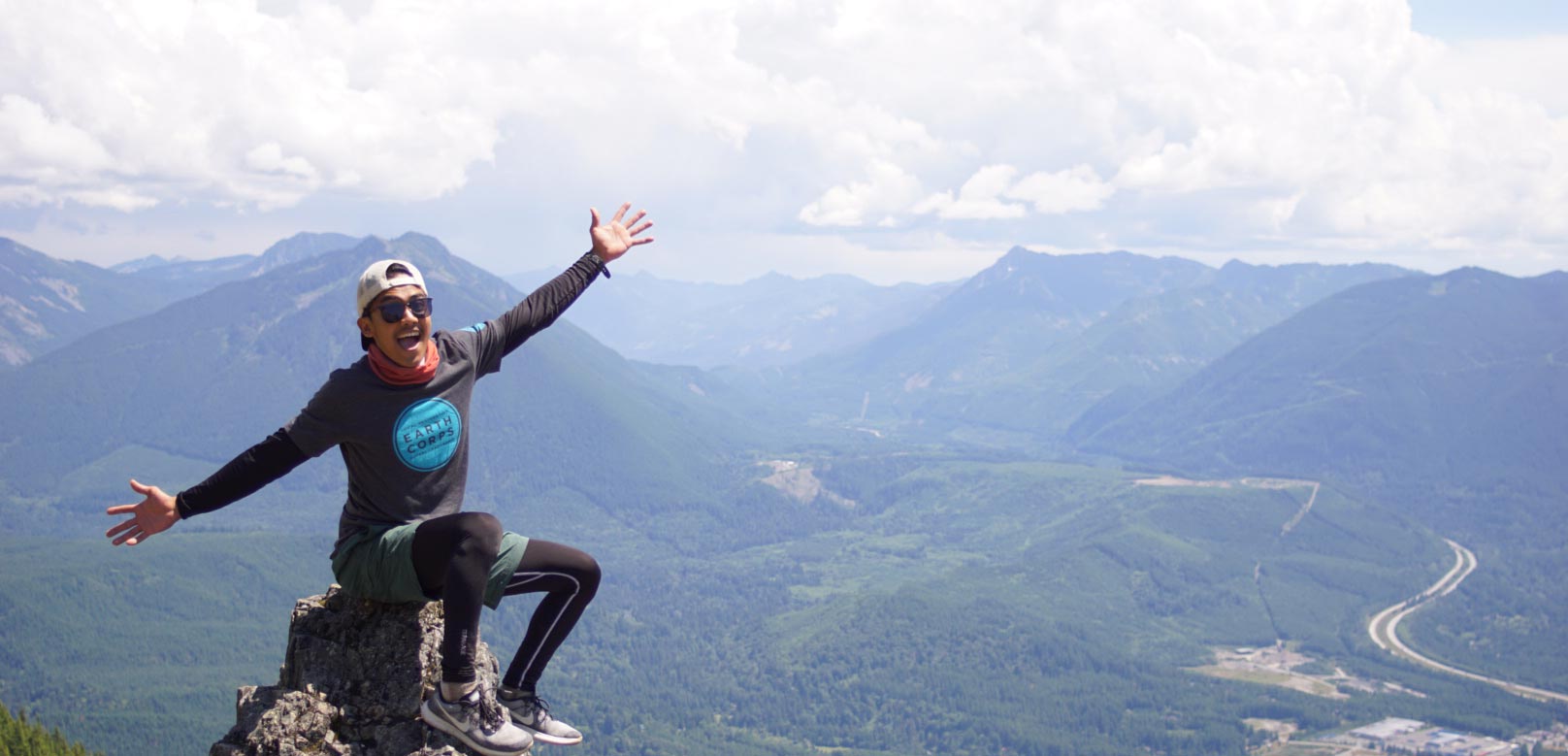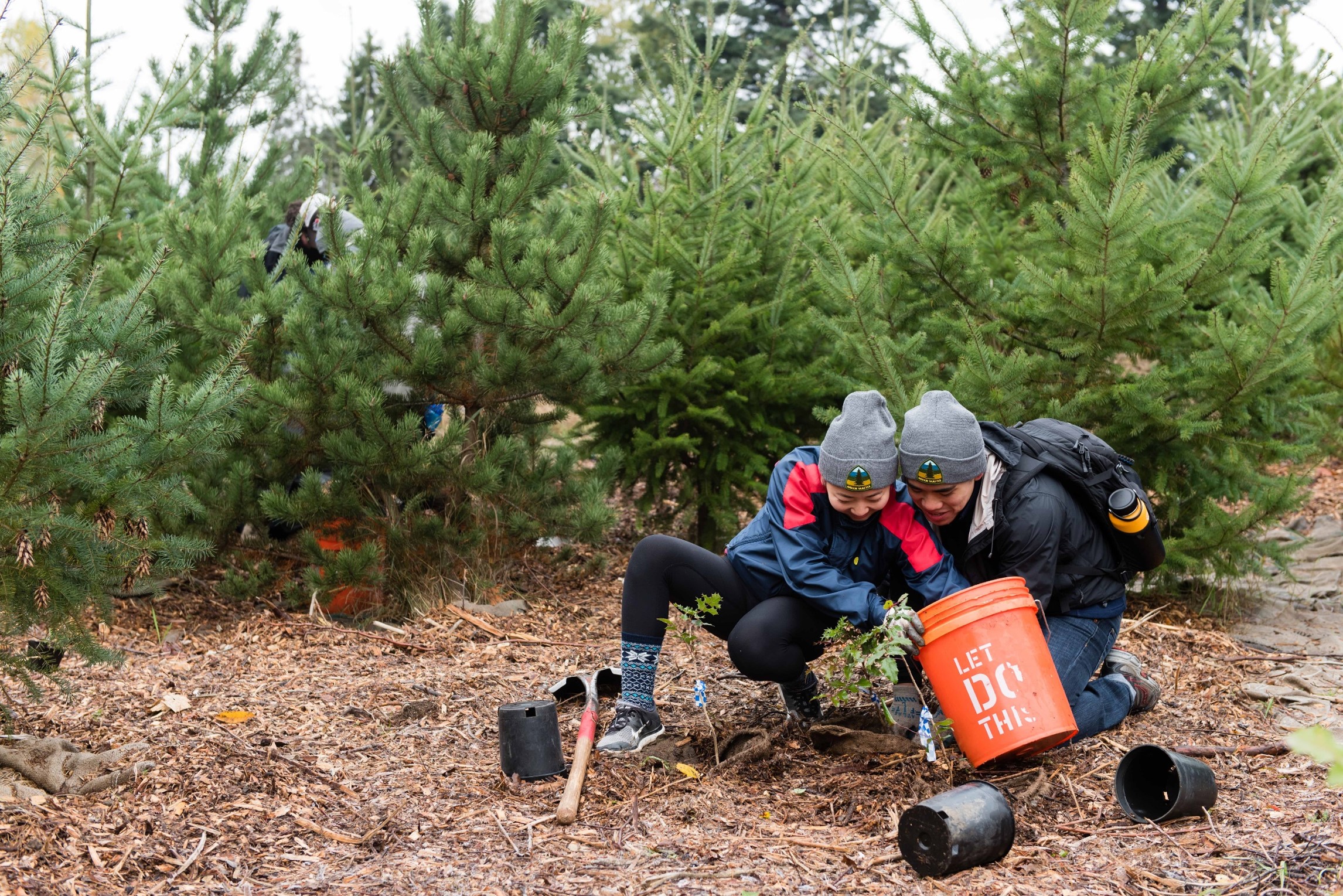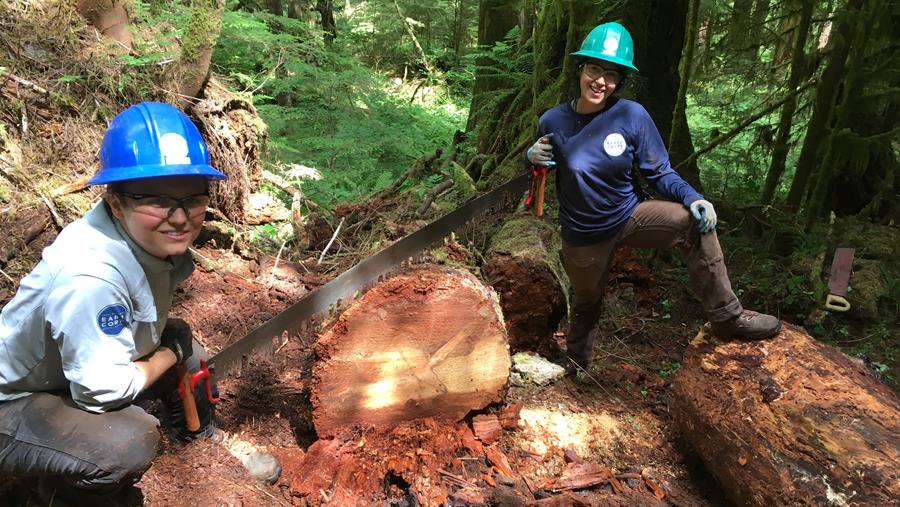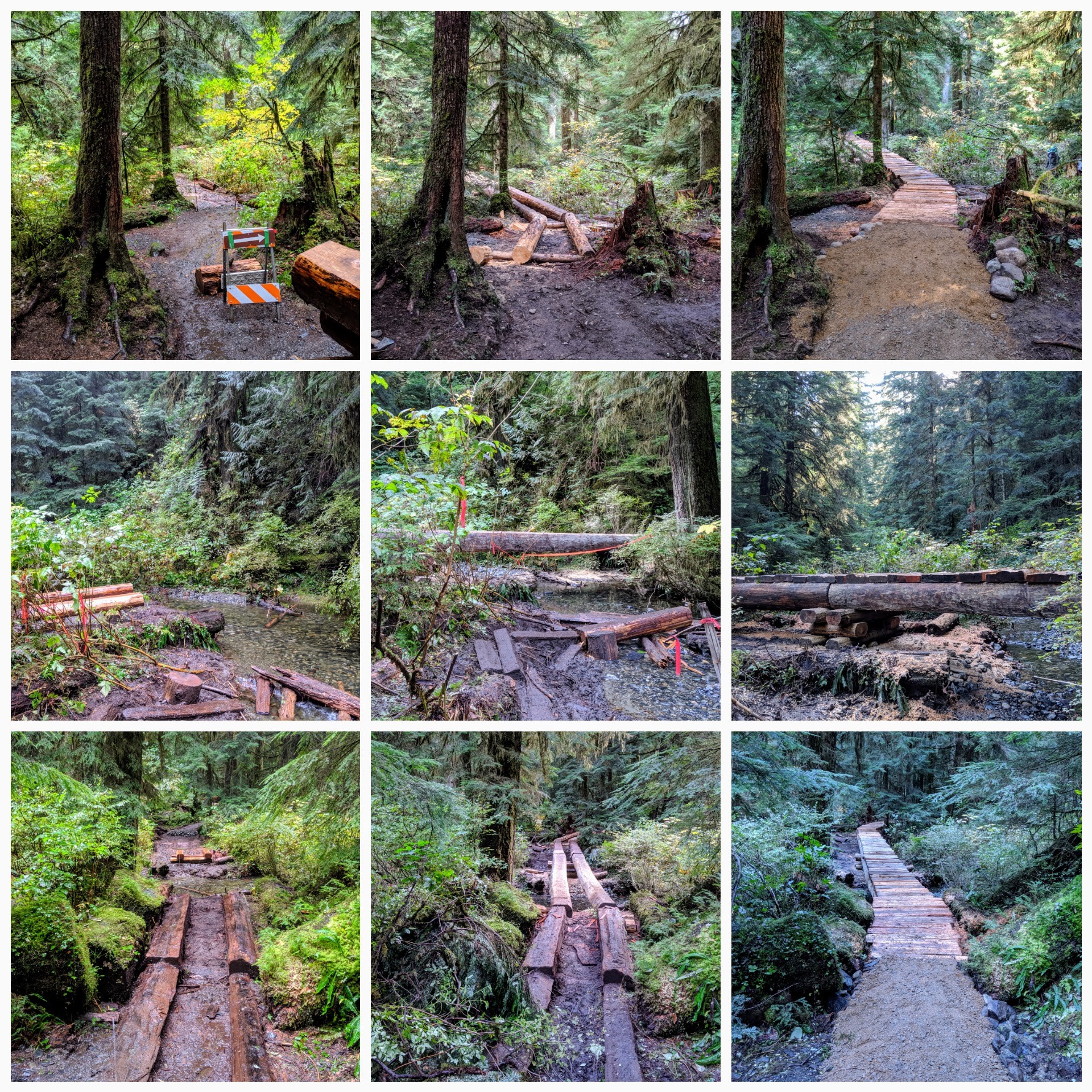“In hundreds of studies, nature experience is associated with increased happiness, social engagement, and manageability of life tasks, and decreased mental distress”
Spending time in nature and other green spaces has proven physical and psychological benefits, including helping people relax and reduce stress, promoting social cohesion, and reducing exposure to air pollutants, noise, and excessive heat.
According to the EPA, the average American spends 92% of their time indoors. By increasing access to parks and trails through park restoration and urban and backcountry trail building and maintenance, EarthCorps is helping people get outside.
Urban Park Restoration
In parks across the region, invasive plants like Himalayan blackberry and English ivy prevent trees from growing by blanketing the forest floor and weighing down trees. EarthCorps removes these invasive species, planting thousands of native trees and shrubs in their place.
These new plants ensure that our parks will be around for future generations to enjoy and will keep our region sustainable in a changing climate. EarthCorps has applied these practices to many parks in our region including Seattle’s beloved Seward Park and iconic Discovery Park.
In 2003, EarthCorps launched Ivy-Free, with the goals of making Seward Park “Ivy-free in 2003.” Though we didn’t quite get rid of all the ivy, with the help of about 5,000 volunteers, we did remove 42 acres of it! This project paved the way for the Green Seattle Partnership, the largest urban forest restoration project in the country.
Over the past several years, EarthCorps crews and volunteers have put more than 63 acres of Discovery Park into restoration. We’ve done that by removing acres of blackberry, ivy, and other invasive plants, and replacing them with over 12,000 plants that will grow into a mature forest.
Want to help? EarthCorps believes that everyone has a responsibility to steward the planet. We invite the community to help us care for our parks and open spaces by joining us at a volunteer event.
Maintain Western Washington Trails
Trails not only increase access to nature but also minimize our impact on the land.
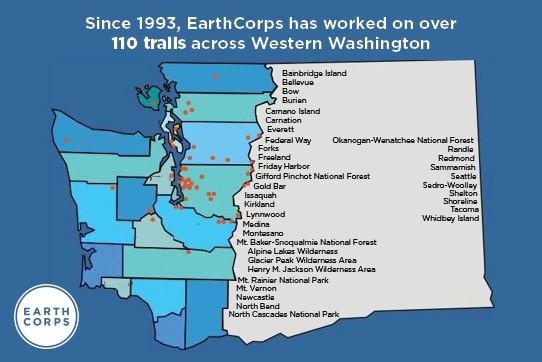
Since 1993, EarthCorps has built or maintained more than 110 trails in Western Washington. See the list of trails we’ve worked on.
There’s a lot of hard work that goes into building trails! Check out everything that went into rebuilding a section of the trail at Lake 22 located in the Mount Baker Snoqualmie National Forest.
